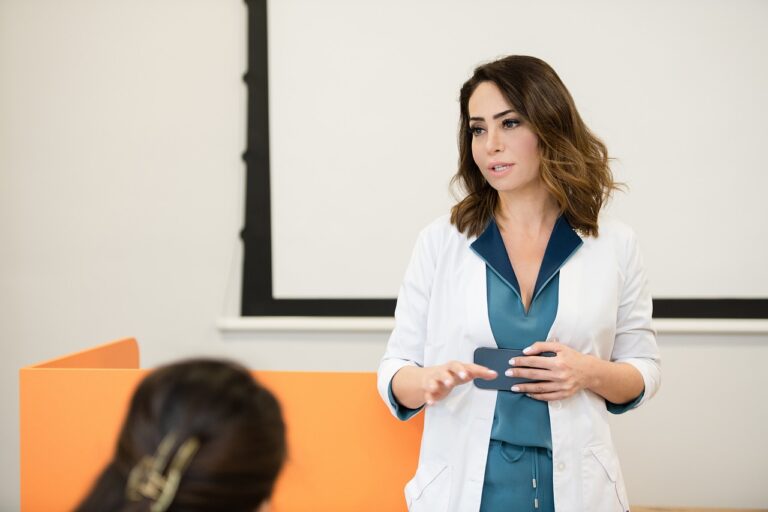Book Appointment Now

Dorothea Orem’s Nursing Theory
In the realm of nursing, Dorothea Orem’s nursing theory has become one of the most widely used and discussed frameworks. Orem’s theory, formally known as the Self-Care Deficit Nursing Theory (SCDNT), provides a foundation for understanding how nurses can best assist patients who cannot fully care for themselves. The theory centers on the concept of promoting self-care and highlights when and how nursing interventions are necessary. This article will explore the key components of the theory and explain how it applies to nursing practice.
Overview of Dorothea Orem’s Nursing Theory
Dorothea Orem developed her theory in the 1950s, driven by her desire to better define the role of nursing in healthcare. Orem’s self-care model proposes that individuals are responsible for their own health and well-being and that nursing care is needed when they cannot meet their own self-care needs.
Her theory consists of three interrelated theories:
- Theory of Self-Care: Describes self-care as activities performed by individuals to maintain their own health and well-being.
- Theory of Self-Care Deficit: Explains when nursing care becomes necessary. According to Orem, nursing interventions are needed when an individual is unable to meet their self-care needs due to illness, injury, or other health conditions.
- Theory of Nursing Systems: Outlines how nurses can help individuals achieve their self-care goals through total, partial, or supportive education interventions.
By integrating these three components, Orem offers a structured approach for understanding the role of nurses in promoting patient autonomy and health.
Key Concepts of Orem’s Self-Care Deficit Nursing Theory
Orem’s theory introduces several fundamental concepts that are essential to understanding its application in nursing practice. These include:
- Self-Care: The activities individuals perform on their own to maintain their health. Examples include eating, bathing, and medication management.
- Self-Care Agency: The individual’s ability to perform self-care activities. A person with high self-care agency can take care of themselves effectively, while those with low agency may need assistance.
- Self-Care Deficit: The gap between a person’s ability to care for themselves and their actual care needs. This deficit highlights when nursing care becomes necessary.
- Nursing Agency: The ability of the nurse to help patients meet their self-care needs.
- Nursing Systems: Strategies that nurses use to support patients. These include fully compensatory systems, where the nurse provides complete care, and supportive-educative systems, where the nurse helps the patient become more independent.
Application of Dorothea Orem’s Nursing Theory in Practice
The practical application of Dorothea Orem’s nursing theory is evident across various clinical settings, from hospitals to community care. Nurses assess patients’ self-care deficits and determine how much assistance is required to address their needs. This assessment guides care planning and the development of personalized nursing interventions.
For example:
- Acute Care: In an intensive care unit, patients may be unable to perform basic self-care tasks, requiring nurses to provide total care. Using Orem’s theory, the nurse identifies areas of self-care deficit and compensates fully to maintain the patient’s health.
- Chronic Illness: In cases of chronic disease, such as diabetes, nurses using Orem’s model might focus on self-care education. They provide the patient with tools and knowledge to manage their condition independently, reducing the self-care deficit over time.
- Community Health: In a community setting, nurses may use Orem’s self-care theory to promote health education and prevent illness. They help individuals enhance their self-care agency by teaching healthy lifestyle habits and offering support.
Orem’s framework ensures that nursing interventions are patient-centered, addressing the unique needs of each individual based on their capacity for self-care.
Looking for nursing essay writing help on Self-Care Deficit Nursing Theory?
Do My Nursing Essay
Impact of Dorothea Orem’s Theory on Modern Nursing
Dorothea Orem’s theory has had a profound impact on the nursing profession, influencing both clinical practice and education. By emphasizing patient autonomy and the role of the nurse in supporting self-care, Orem shifted the focus of nursing from solely providing care to empowering patients. This approach aligns with modern healthcare trends that promote patient-centered care and self-management of chronic diseases.
Additionally, Orem’s self-care theory explained how nurses could better define their role within interdisciplinary teams, particularly in managing long-term health conditions. The theory also encourages nurses to advocate for policies that support patient education and health promotion.
Dorothea Orem’s nursing theory continues to be a guiding framework for nurses worldwide. Its focus on self-care, patient empowerment, and tailored nursing interventions makes it highly applicable to today’s healthcare environments, where the promotion of patient independence is a priority. Understanding and applying Orem’s theory enables nurses to provide effective, personalized care, ensuring patients receive the appropriate level of support to meet their unique health needs.
For more in-depth exploration, you can access resources such as Dorothea Orem self-care theory PDF or presentations like Dorothea Orem self-care theory PPT for further insights into this influential model.
Also read:
- NUR 2058 Orem’s Self-care Mode Assignment
- Paper on the Importance of Nursing Theories to Nursing







